Crime Tourism – ATM Skimming Operations



 15.06.2025
15.06.2025
 6 min read
6 min read
Crime Tourism – ATM Skimming Operations
We’ve all been there, choosing our next travel destination. What should be a fun and exciting experience, can sometimes be stressful and overwhelming as there are many factors that can impact on our choice of a travel destination, to name a few: budget, travel companions, timing, weather and popular attractions.
For some people, the decision factors that go into choosing a travel destination are completely different. These people are looking at:
Those people are “Crime Tourists.”
Usually, when we hear the combination of the words “crime” and “tourism” they are being referred to in a context of a tourist falling victim to crimes, but there is another side to that coin. A side which represents crimes committed by the tourist. Crime tourism has many faces and sophisticated schemes. In this article, we will share an overview of one aspect of crime tourism – ATM skimming.
ATM skimming is a type of fraud which occurs when an ATM is compromised by a skimming device, usually a card reader being disguised to look like a part of the machine. The card reader saves the victim’s card information and a hidden camera captures the pin code. In a later stage, the stolen card data is replicated into a counterfeit copy for fraudulent use.
For the past decade, an organized crime syndicate has been spreading its operations worldwide with Financial Institutions from the UK, East Europe, South America, Africa, Israel, Thailand, India, and the U.S. all reporting a similar narrative – a Romanian passport holder arrives at his “vacation” destination and skim different devices (ATMs, gas pumps and other POS terminals), stealing money from unsuspecting victims and then launder their funds using cryptocurrency right before they flee the country.
Experts estimate ATM skimming fraud cost consumers more than $1.3 billion annually worldwide. In 2018, there have been more than 25 reports across 17 states of ATM skimming, allegedly being made by Romanians (and these are only the ones who got caught and reported).
The Romanian mafia is no different than any other organized crime; just like any legitimate businesses, it’s designed as a pyramid structure. The Mafia has advisors who work closely with the ‘Boss’ to assign tasks to different crews, their superiors (captains), and soldiers who carry out the work.
Loretta Napoleoni, a Macroeconomist studying the connection between terrorism and economy, shared that by interviewing dozens of terrorist and organized crime members she arrived at the following conclusion:
“The ideology and the political vision is decided by the leadership, which generally never more than five to seven people. All the others do, day in and day out, is search for money.”
It may surprise you to learn that about 23% of U.S. citizens still make all their purchases using cash. According to forecasts, by 2021 cash will represent 11.2% of the U.S. GDP.
Since financial institutions are slow to adopt technologies and a 15-year-old machine running a Windows 95 OS is fairly common, the U.S. is the perfect location for skimming. Even though we’ve seen some interesting “Anti-skimming” solutions for ATMs in recent years their have not been implemented in a grand scale.
The Mafia is counting on the fact that it’s impossible to prevent a single nation from visiting a country simply because some of them might end up being involved in illegal activities during their stay. A customs declaration form asking for the purpose of the visit will unlikely read “I’m here to steal!”
The Dark Web allows all skimming devices and tools to be shipped to any address in the country and at the same time find a lodging solution while staying anonymous. This usually isn’t a problem because the Foreign Head of Operations can set up shop and carry out the skimming operation immediately.
Financial institutions don’t have the authority to arrest criminals, and local law enforcement in most cases don’t have the much-needed knowledge or are too slow to react. In cases of successful arrests, the FBI and the U.S. Secret Service do a great job in putting pressure on these criminals to turn in their superiors and even finding higher members in the organization’s chain of command, linking ATM skimming cases to Euro-Asian crime groups.
The issue with getting to the top of the pyramid is that the arrested criminals are afraid to cooperate because it would put themselves and their loved ones in jeopardy. For that reason, they plead guilty and are sentenced to do a relativity short jail time following by deportation back to their home country. Since the soldiers are disposable and new recruits always readily available, the Mafia has zero risk for exposure and incarceration.
In summary, controlling skimming fraud requires patience, ongoing cooperation of financial institutions, software & hardware solutions, and finally local law enforcement. This effort should be led by a federal entity with the support of the justice system to create a centralized solution for monitoring and reacting.





Extending AML Regulations to Investment Advisors
On August 28, 2024, the Financial Crimes Enforcement Network (FinCEN) issued a final rule that extends Anti-Money Laundering (AML) and Countering the Financing of Terrorism (CFT) requirements to Registered Investment Advisers (RIAs) and Exempt Reporting Advisers (ERAs). This rule, effective January 1, 2026, mandates that RIAs and ERAs develop and implement comprehensive AML/CFT programs, aligning them with other financial institutions under the Bank Secrecy Act (BSA).

2024 Year in Review: Financial Crime Compliance, and Regulatory Trends
In 2024, regulatory enforcement increased, financial crime risks evolved, and scrutiny of both traditional and emerging financial institutions heightened. As regulatory bodies worldwide intensify their focus, organizations must adapt to a rapidly changing compliance landscape.

Databricks 2024 Developments and Announcements
The global Databricks Data + AI conference held two weeks ago in San Francisco included a long list of innovations and announcements. Unlike last year, this year Snowflake and Databricks held their conferences in the same conference hall (Snowflake first and Databricks a week later), giving data professionals and enthusiasts the opportunity to catch up, learn and attend an action-packed couple of weeks of announcements, expert presentations and networking..

Cloud AI and RPA
The fight against financial crimes has been on for decades. Do you remember Michael Night? Those of us who grew up in the good old days of the 80s were probably huge fans of the American action crime drama TV series, Knight Rider.

FINTRAC’s requirements – Armored cars
The Financial Transactions and Reports Analysis Centre of Canada (FINTRAC) is Canada’s financial intelligence unit and anti-money laundering and anti-terrorist financing supervisor. Its mandate is to facilitate the detection, prevention and deterrence of money laundering and the financing of terrorist activities, while ensuring the protection of personal information under its control.

Using Generative AI in Combating Financial Crimes
Amazon recently launched a feature where hundreds, and sometimes thousands, of reviews are summarized into a concise and simple paragraph. This auto-generated summary allows the customer to instantly get an overall review of a product’s capabilities as well as overall customer satisfaction. This is a great example of using Large Language Models (LLM) to process and produce text that resembles that of humans. These models can understand language structures, grammar, context, and semantic linkages since they have been trained on enormous amounts of text data.

Evolution of DeFi Amid Regulatory Uncertainty
Emerging technologies are reshaping the financial services industry. On one end of the spectrum, initiatives such as Real-Time Payments and ISO20022 are modernizing existing payment infrastructure, making it faster and more efficient. On the other end, blockchain and distributed ledger technologies (DLT) are laying the foundation for an alternative ecosystem involving digital assets and cryptocurrencies.

Balance Open Banking Enthusiasm with Caution
Digitalization and Open Banking are two most prominent trends in banking industry in recent time. While the former was initiated by changing customer behavior, the latter was driven by regulatory and market forces.
Open Banking is a new kid on the block with a lot of promise and fanfare, but it can present new challenges for financial services. Rather than being swayed by its exuberance, a cautious approach is required for its implementation.

Combating Fraud – A Journey From Good to Great
Financial Institutions are in a similar situation. A lot has changed in the last few years. Fraud activities and losses are on the rise. FIs need to act or face the consequences – higher fraud losses, loss of public trust and declining customer loyalty. Given the risk, it is imperative that risk leaders adjust their fraud strategies to adapt to the new reality.
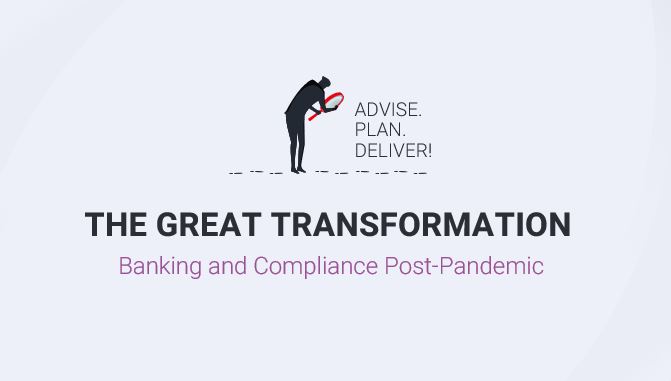
Banking & Compliance Post Pandemic
Traditional banking and the wind of change are not inherently linked, but now more than ever, it seems that the change offered by modern technology is not only adopted, but due to the pandemic is happening at an accelerated pace. From the demand for more speedy processes, through the increased trend of closing branches, and all the way to new possibilities that the digital arena offers (including AI and Machine Learning). All this without even mentioning Crypto and the challenges it posts to traditional banks. Weather we like it or not, change is all around us. Here are some highlights from our recent webinar where we discussed banking and compliance post pandemic:

Understanding Economic Sanctions
Imposing economic sanctions is a powerful foreign policy tool used by countries and international organizations that can include travel bans, asset freezes, arms embargoes, and trade restrictions with countries, individuals, and entities. The US Department of the Treasury’s Office of Foreign Assets Control (OFAC) “administers and enforces economic and trade sanctions based on US foreign policy and national security goals.” The names of individuals, entities, aircraft, vessels, and countries are incorporated into OFAC’s list of Specially Designated Nationals and Blocked Persons (“SDN list”), which blocks U.S. persons from transacting with both them and their assets. The SDN list is updated ad-hoc, with new additions to and removals from the list.
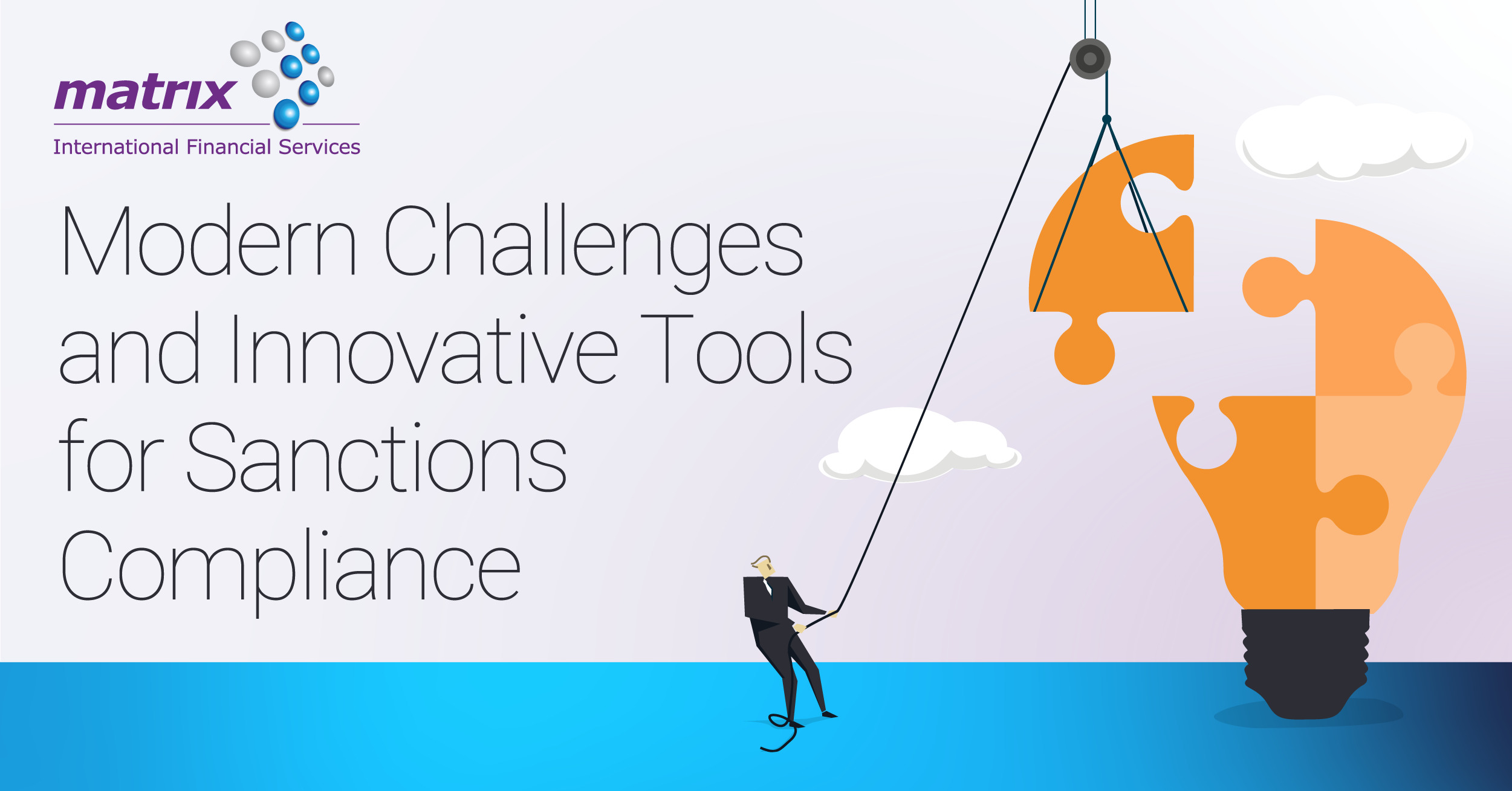
Modern Challenges and Innovative Tools for Sanctions Compliance
Financial institutions need to meet growing sanctions compliance demands without disrupting customer services, incurring an exorbitant overhead, and being exposed to regulatory fines.
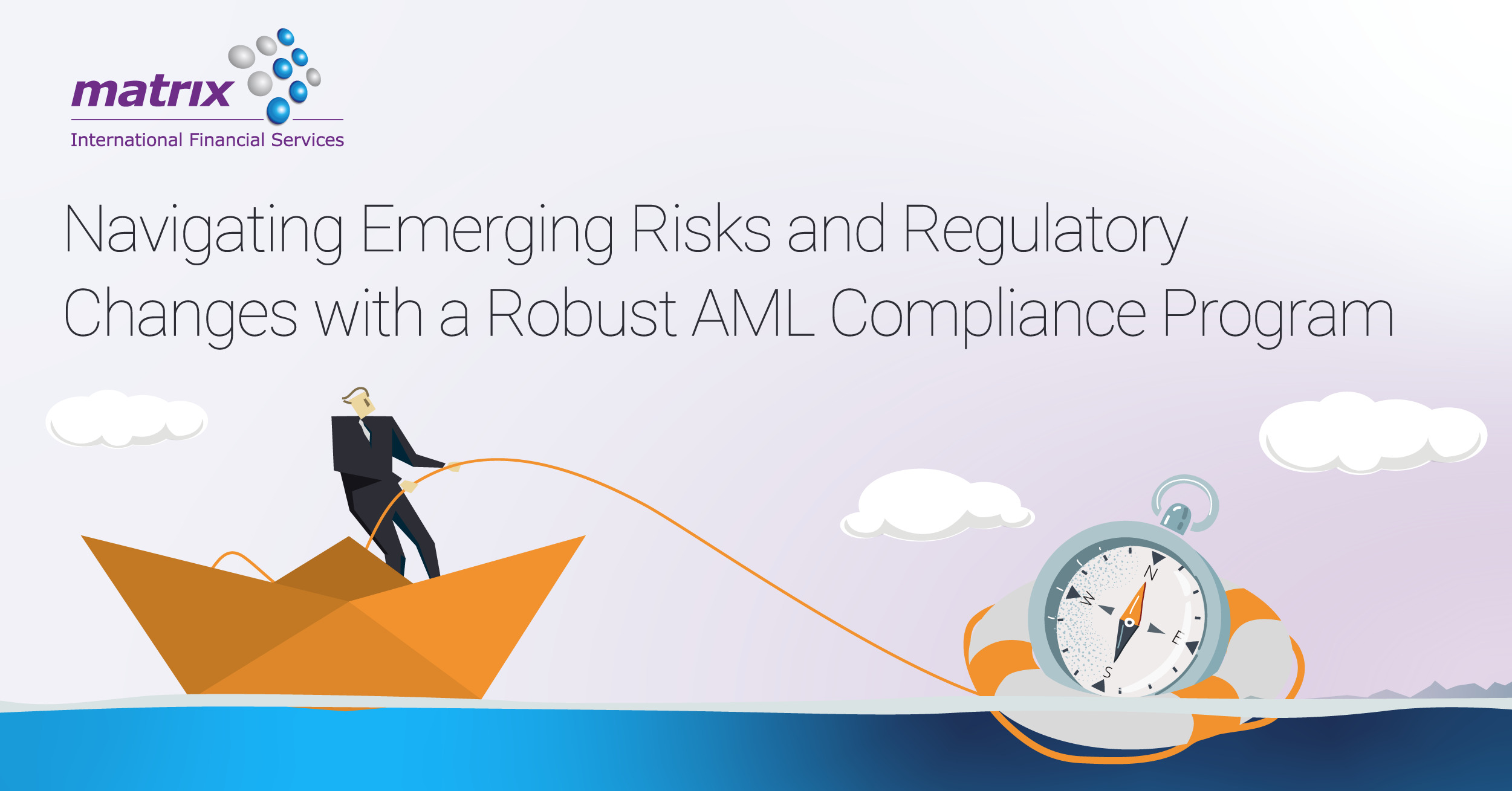
Navigating Emerging Risks and Regulatory Changes with a Robust AML Compliance Program
Regulators have fined financial institutions close to 20 billion dollars for Anti-Money Laundering (AML) shortcomings and regulatory violations in the last 6 years.
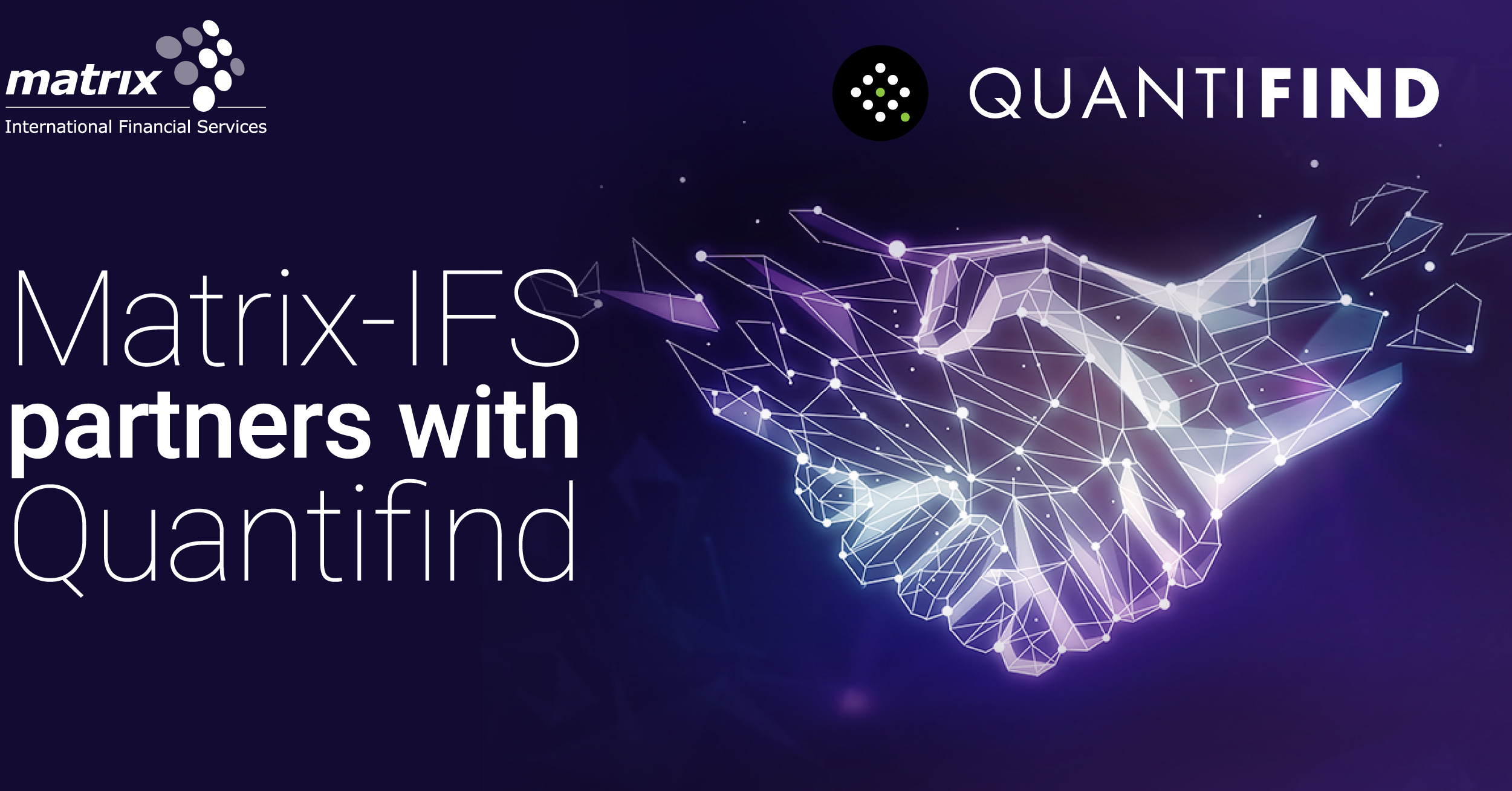
Matrix-IFS and Quantifind Partner to Complement Financial Crimes Solutions and Services
Quantifind, a provider of a SaaS platform used by banks to help automate financial crimes risk screening and investigations, today announced its partnership with Matrix-IFS, the leading provider of financial crime advisory and implementation services. Quantifind’s Graphyte™ platform brings best-in-class risk assessment and entity resolution accuracy to Matrix-IFS’ comprehensive services for KYC/CDD/EDD, transaction monitoring, sanctions screening, and case management. Graphyte includes integrations with leading case management platforms that seamlessly incorporate advanced risk intelligence directly within analysts’ familiar tools and workflows.
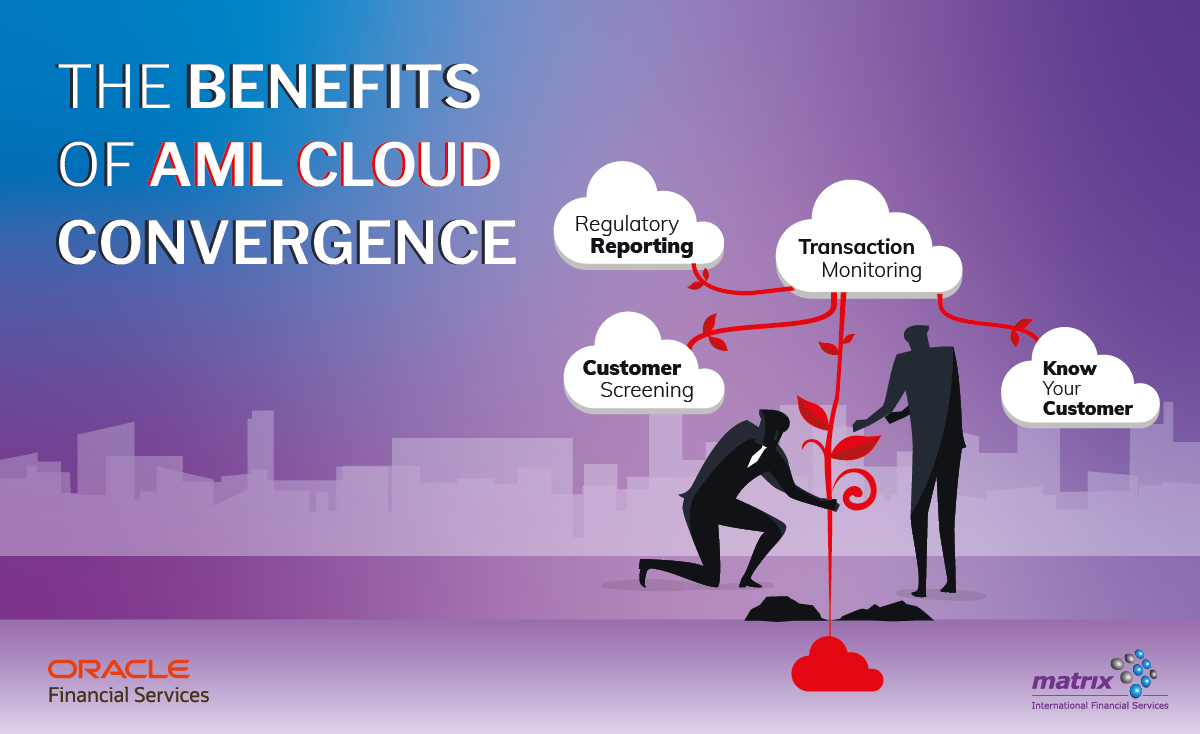
The Benefits of AML Cloud Convergence – AML as a Service
Many Chief Compliance Officers at midsized financial institutions sense that streamlining their anti-money laundering systems will lead to increased efficiency and effectiveness across their AML programs, but they wonder where to start.

How Mid-sized FIs Can Turn 3 Industry Trends into AML Opportunities
Midsized financial institutions (with $1 billion – $10 billion in assets) play an important role in our financial system, especially in the U.S. where banks with less than $10 billion in assets represent 14% of the market and 97% of the total number of banks.
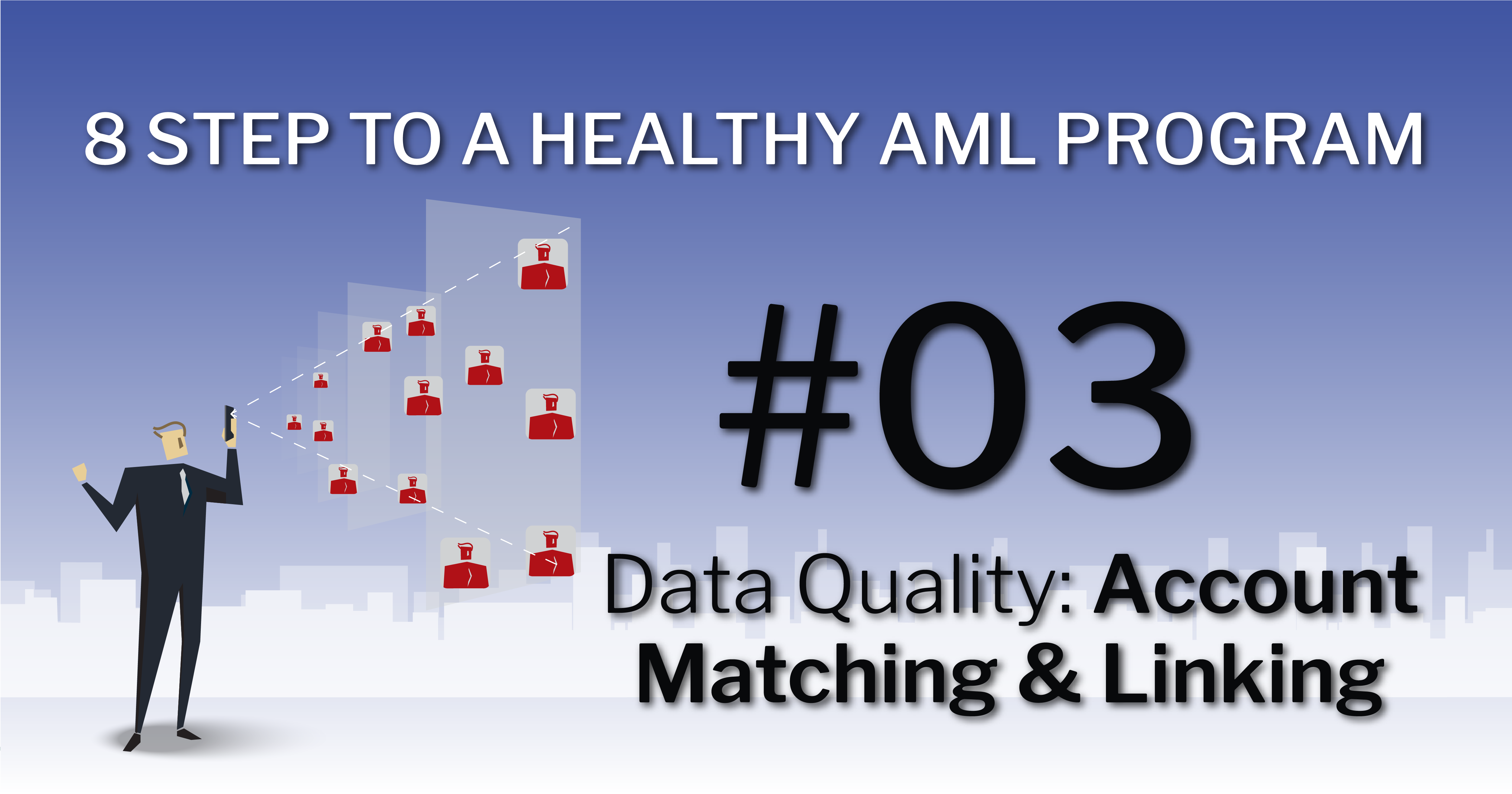
Step 3 – Entity Resolution (Account Matching & Linking)
Welcome back to Matrix AML Academy. In case you missed our previous post, this is the 3rd part of an 8-part educational program on how to improve tour AML program and systems
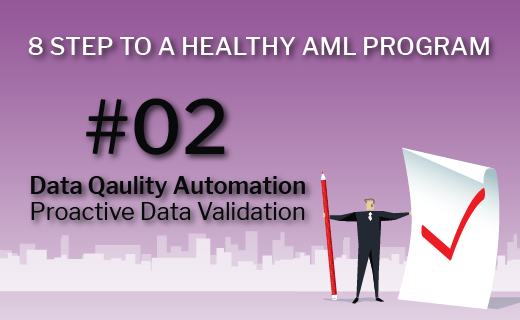
Step 2 – Proactive Data Quality Automation
Welcome back to Matrix AML Academy. In case you missed our previous post, this is the 2nd part of an 8-part educational program on how to improve tour AML program and systems
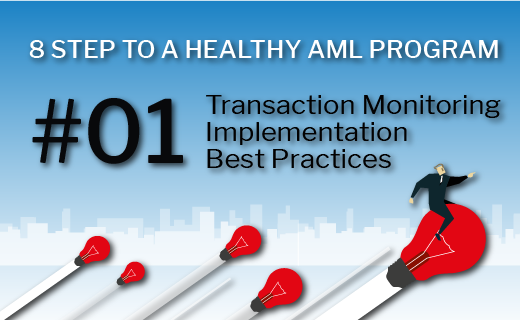
Step 1 – Transaction Monitoring Implementation Best Practices
Welcome to Matrix Academy! A place you can hone in on your AML skills, gain valuable knowledge, learn insider tips of the trade and keep up to date with current technologies and methods
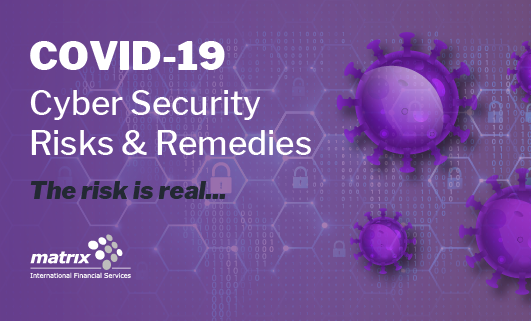
COVID-19 Cyber Security Risks & Remedies
As COVID-19 continues to spread, phishing lures related to the CoronaVirus continue to appear. Some instances of “Casebaneiro Banking Trojan”, “HawkEye” and “WSH RAT” all using COVID-19 in phishing lures or executable names were spotted.
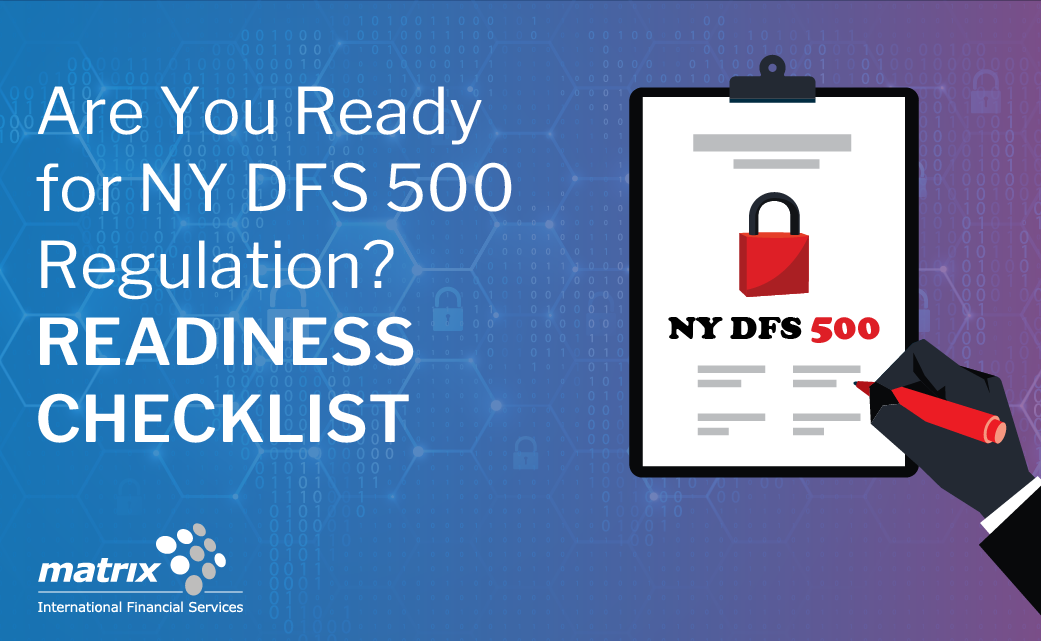
The NY DFS 500 Cyber Security Regulation Requirements Checklist
The New York State Department of Financial Services (“DFS”) has been closely monitoring the ever-growing threat posed to information and financial systems by nation-states, terrorist organizations and independent criminal actors.
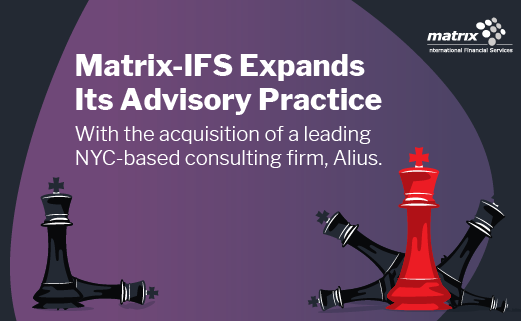
Matrix-IFS Expands Its Financial Crime Advisory Practice
Matrix-IFS, a specialized financial crime and compliance solution provider, announces the expansion of its Advisory Services with the acquisition of a leading NYC-based Advisory consulting firm, Alius.
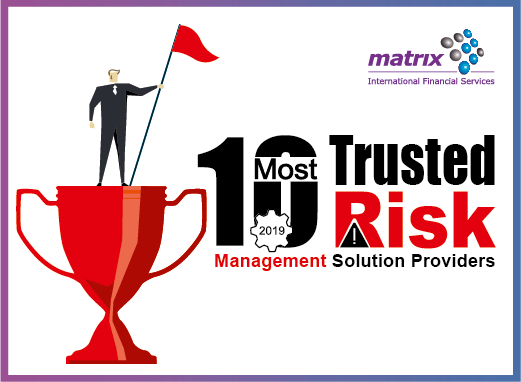
Matrix-IFS Named “10 Most Trusted Risk Management Solution Providers” in 2019
With millions of accounts containing people’s life savings, security has always been one of the largest concerns for financial institutions and their customers. As cybercriminals become more sophisticated in their hacking techniques, institutions should adopt more advanced cybersecurity and fraud prevention systems. Although new technologies provide more advanced security options, knowing which ones to use and how to implement them is a challenge many institutions face today.
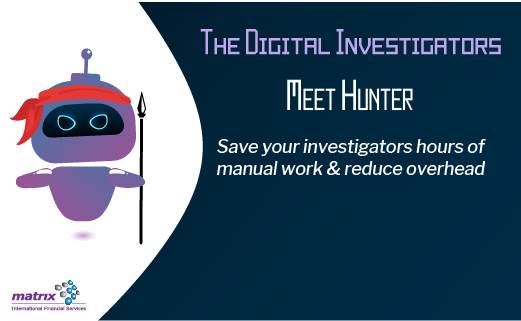
Hunter – The Historical Transaction Lookup Digital Investigator (RPA BOT)
Looking up historical transaction data is a task every Investigator knows and dreads; constantly going to the upstream data systems, collecting historical data, merging it, only to try and make sense how the customer behavior looks like. Imagine a world where he wouldn’t have to do all that and simply focus on investigations. Sounds like a dream, right? Not anymore. With Robotics Process Automation it is now a reality, one that could easily and quickly be adapted.
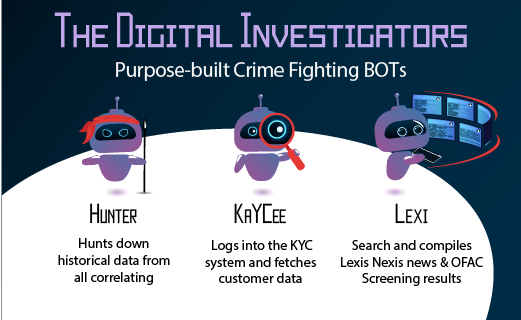
Unveiling Hunter, Kaycee & Lexi – AKA, the Digital Investigators
On October 10th, we had the honor of speaking at the European Banking Forum in London in front of 100 compliance & financial crime Senior Managers, where we announced our purpose-built Digital Investigators into the world.

A Word About Cost Conscious Compliance
Last week, we had the honour and pleasure to engage in a fruitful conversation with a roomful of Compliance leaders from the financial sector, to share ideas and findings as to practical approaches to reducing compliance overheads.

Matrix-IFS is Sponsoring ACAMS Europe in Berlin (June 12-13 )
On June 12th, Matrix-IFS will be taking part in one of the most prestigious Financial Crime Conferences in Europe – ACAMS Europe, which will take place at the Berlin Congress Center GmbH. This 2-day conference brings together vendors, industry thought leaders and various financial institutions from across Europe.
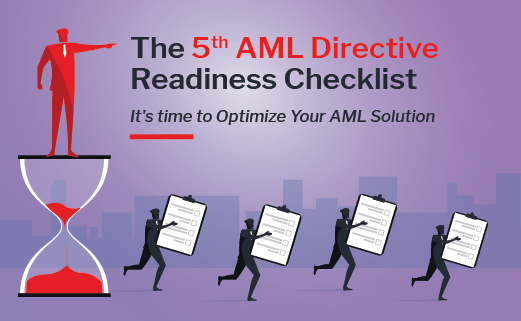
The 5th AML Directive Readiness Checklist
During 2019-2020, EU countries will pass laws that introduce the 5th AML Directive (5MLD) into their respective national laws. Now is the time for your organization to invest in improving and optimizing your existing AML solutions to meet the increased challenges and regulator demands before it’s too late.
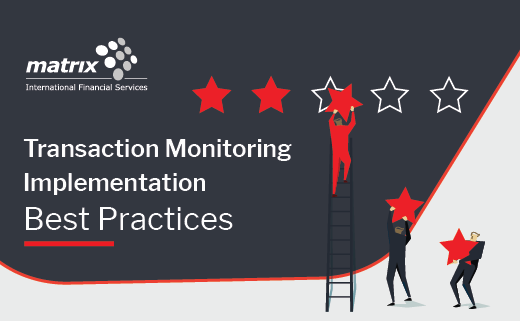
Best Practices to Transaction Monitoring Implementation
There are four key phases in transaction monitoring (TM) implementations and how a bank should design and execute these phases. Successful implementation of rule selection, data prep, segmentation, tuning and operational optimization will determine the success of the overall TM implementation in your organization.

Matrix-IFS is Attending ACAMS Florida (April 15-17)
On April 15–17 Matrix-IFS will be taking part in one of the largest Financial Crime Conferences in the US – ACAMS Florida, which will take place at the Diplomat Resort & Spa in Hollywood, Florida. This 3-day conference brings together vendors, industry thought leaders and various financial institutions from across the world.

The Problem with AML Today & How to Fix It: Part I – The AML Problem
The latest discoveries around the massive scale of money laundering at Danske Bank and ING are just two of the most recent examples of an underlying problem with the Anti-Money Laundering (AML) discipline. Despite increasing efforts and investments focusing on the AML problem, money laundering techniques continue to evolve and evade the controls implemented by Financial Institutions (FIs). More and more industry voices decry the efficiency and effectiveness of the current AML approach – which entails running all transactions through a series of automated checks to spot anomalies based on a large set of pre-defined typologies provided by experts.
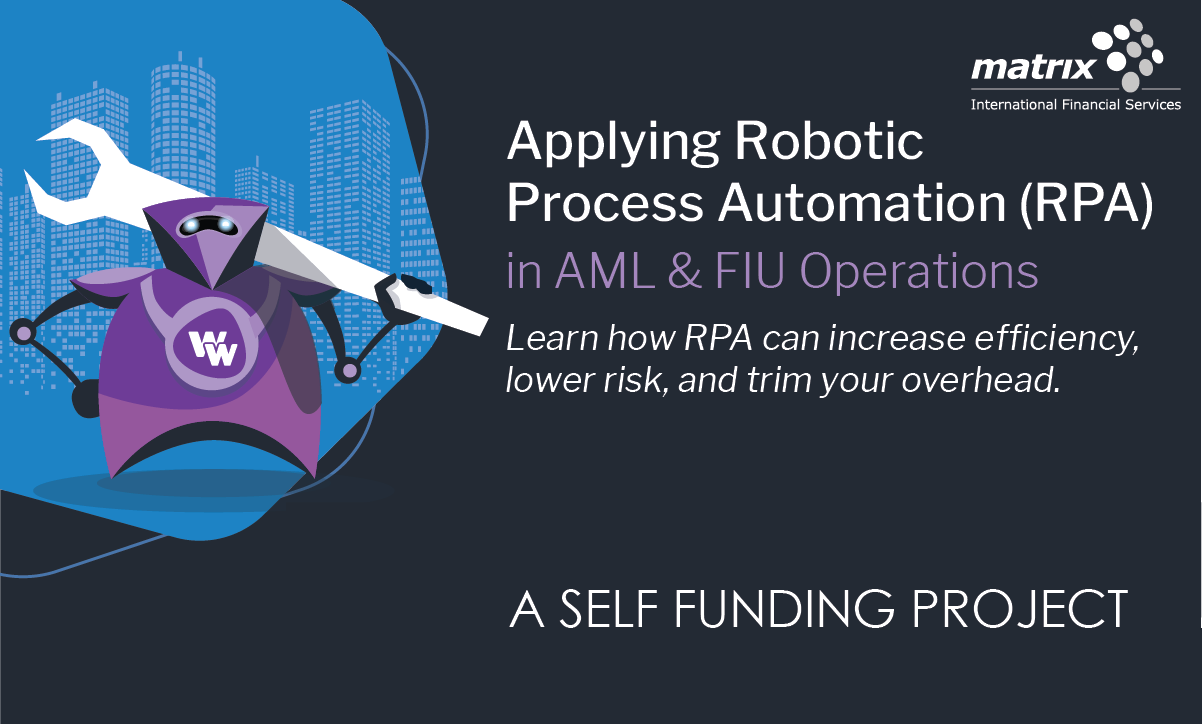
Applying Robotic Process Automation in AML & FIU Operations
Learn how RPA can increase efficiency, lower risk, and trim your overhead
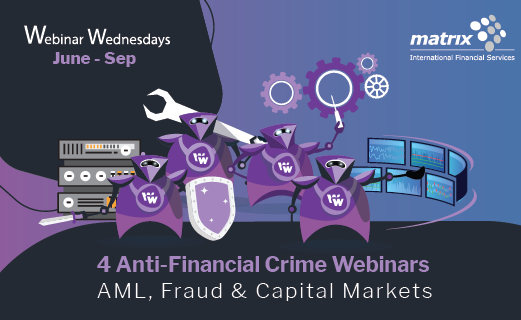
Matrix-IFS Hosts 4 Anti-Financial Crime Webinars
Matrix-IFS introduces a series of timely and informative webinars on new issues, trends and solutions in Anti-Financial Crime. Webinars are designed to update and inform risk, compliance, control room and fraud professionals working in financial institutions and capital markets.

Supercharge your FIU’s Operations with RPA at ACFE Las Vegas
During The 29th Annual ACFE Global Fraud Conference Anshul Arora , Head of FL Delivery Center will present Matrix-IFS’s RPA solution for improved operations and increased efficiency. During his session, Anshul will explore a new vision of a modern FIU department, which incorporates Artificial Intelligence, Machine Learning and advanced analytics to address and reduce alerts as well as how robotics and automation can play part in reducing risk and simplifying the work of the Investigators.
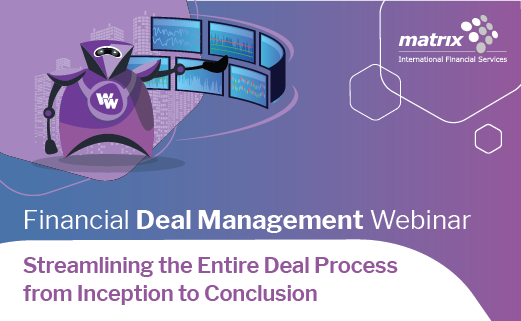
Top 6 Deal / List Systems Challenges and How to Solve Them
You know the challenges associated with your Deal Management (DMS) and List Management (LMS) systems & processes. You may even be aware of the full burden and cost they pose to your department and your organization. Now benefit from the fresh approach firms are taking with their Deal and List Management systems to gain efficiency and save time and resources.

How to Overcome AML Operations Growing Pains Using Cutting-edge Technology? | Find Out at ACAMS Europe
During ACAMS Annual Europe Conference taking place 30 May – 1 June in Amsterdam, Matrix-IFS will participate in a panel session on the subject of AML Operations and how to fight growing pains using cutting-edge technology where we will share options to enhance performance by replacing limiting rule-based solutions with far more efficient intelligent solutions that operate within existing infrastructure.The panel will discuss combining Graph Analytics, AI/Machine Learning, and Scenario Authoring on big data to improve the quality of detection, prevention and reporting of financial crimes.

Future-Proofing Financial Crime Compliance: A Technology Blueprint for Smarter Risk Management
The evolution of threats to the financial system is outpacing advancements in Financial Crime Compliance (FCC) regulations and technology used by financial institutions (FI). In this situation, FI can save considerable funds, by creating or evolving their business architecture with a view of adapting to emerging threats and the advanced tech that will be required to tackle them.

Matrix-IFS Named “Top 10 Risk & Compliance Solution Providers 2018”
Since 2006, Matrix International Financial Services (Matrix-IFS) has been helping financial institutions strengthen business compliance and address financial crimes and fraud issues, with a goal to satisfy both regulators and clients with effective, efficient and cost-effective solutions.

Deciphering Multi-Faceted Venezuelan Sanctions – Top Ten Practical Tips to Stay Compliant
The recently imposed Venezuelan sanctions issued by the U.S., the E.U., and Canada have placed heavy burdens on sanctions compliance programs. This has made it…
Quick answers. Real solutions.
Let’s Connect and Explore How We Can Help
Fill out the form and our team will get back to you shortly.

Quick answers. Real solutions.
Let’s Connect and Explore How We Can Help
Fill out the form and our team will get back to you shortly.
 Thank you!
Thank you!
Please submit your details
